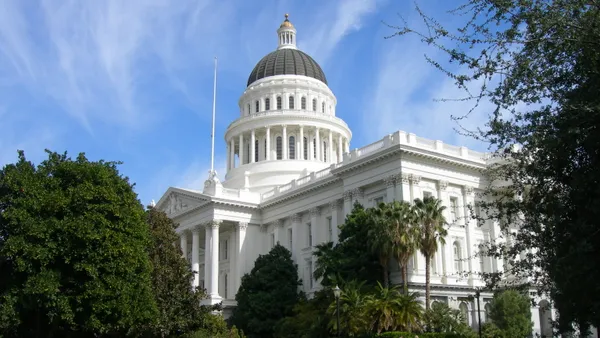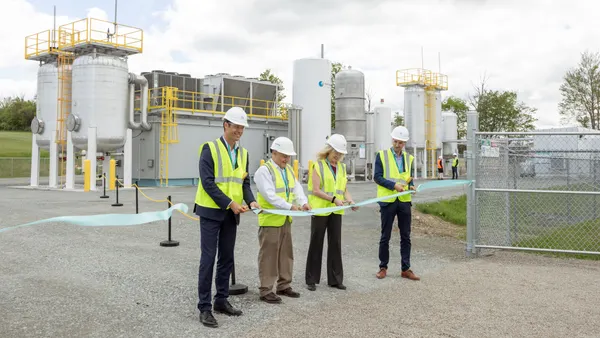Dive Brief:
- A Kentucky circuit court judge this week struck down rules regulating how utilities can construct new coal ash reservoirs, concluding they were developed more to help utilities save money than to protect consumers, the Louisville Courier Journal reports.
- The new rules were passed last year and meant utilities would not need to apply for permits to construct a landfill to store coal ash, moving to a “permit-by-rule” system that would allow construction to begin without review.
- State officials argued that the new rules would comply with changes to federal regulations passed by the Obama administration in 2014, but would also eliminate red tape in the form of redundancies between federal and state rules.
Dive Insight:
In overturning the rules, Judge Phillip Shepherd criticized state officials for keeping citizens out of the development process — and how the new rules would also eliminate them from the regulatory process.
"Unfortunately, during the course of its regulatory development, the cabinet chose to limit its input to stakeholders from the utility industry," Shepherd wrote in the decision.
That is a rebuke of Kentucky Secretary of Energy and Environment Charles Snavely, who last year in a defense of the rules said "the cabinet also is developing these proposed regulations — with full public participation — to eliminate redundancies and inconsistencies between overlapping state and federal rules that could cause confusion."
Kentucky Resources Council represented the plaintiff, a citizen and landowner objecting to plans for a new coal ash storage reservoir planned by Louisville Gas & Electric. The utility, as well as Snavely, were defendants.
While Kentucky's rules aligned with federal rules issued in 2014 that created requirement and standards for the management of coal combustion residuals, the state's self-implementing strategy meant citizens had little say in where they are located or how they are constructed.
In its comments on the new rules, Kentucky Resources Council last year said it was "gravely concerned with the proposed set of administrative regulations and the laissez faire approach to management of coal combustion wastes." According to the group, the first time the public would have notice of a new coal ash reservoir "would be when the construction began."












